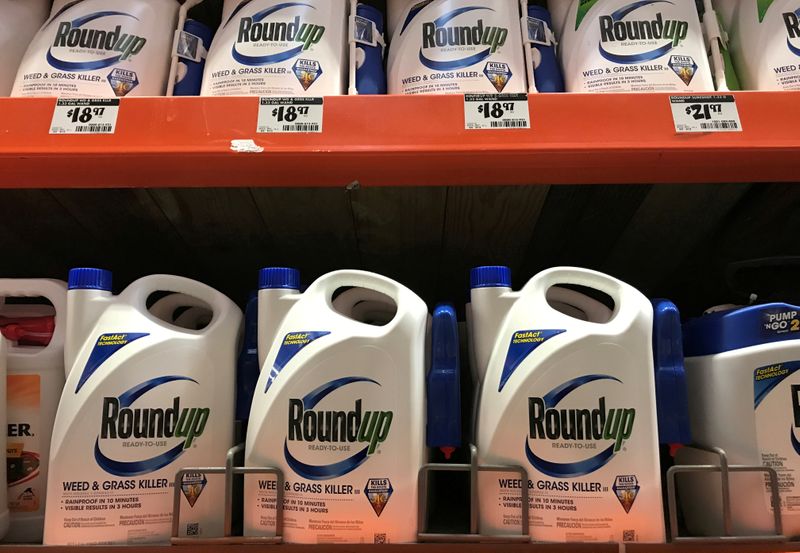This post was originally published on this site
https://i-invdn-com.akamaized.net/trkd-images/LYNXNPEG8N1XQ_L.jpg
(Reuters) – Attorneys for Bayer AG (DE:BAYGN) and consumers suing the company over allegations its Roundup weedkiller caused cancer told a judge on Thursday they are continuing to resolve thousands more cases, improving prospects for its $11 billion deal to end the litigation.
The hearing was a contrast to the contentious tone among the parties last month that raised concerns the framework deal might unravel.
Ken Feinberg, who is mediating talks, said his “optimism knows no bounds,” and that he expected the next set of cases scheduled for trial to soon settle.
U.S. District Judge Vince Chhabria in San Francisco kept a stay on litigation until Nov. 2 and asked the parties for a status update at that time.
The parties have binding deals to resolve about 45,000 of the 125,000 filed and unfiled claims, according to attorneys involved. Settlements have been reached with each of the lawyers who took cases to trial.
Bayer (OTC:BAYRY), which acquired Roundup with its purchase of Monsanto (NYSE:MON) for $63 billion in 2018, agreed in June to pay around $11 billion to settle the lawsuits, which have pummeled the company’s share price.
Bayer’s stock closed down 1% on Thursday at 54.41 euros. Shares have slumped from a high of around 73 euros since the June settlement announcement.
Chhabria had questioned the fairness of the settlement plan, which proposed using an independent scientific panel to assess whether glyphosate-based weedkillers such as Roundup caused cancer.
Days later, Bayer said it would revise that part of the proposal.
Bayer has said Roundup is safe and important to farmers who use the herbicide in combination with the company’s genetically modified seeds.
In 2015, the World Health Organization’s cancer research arm determined the herbicide to be a “probable carcinogen.” U.S. and the European regulators have determined glyphosate to be non-carcinogenic.

